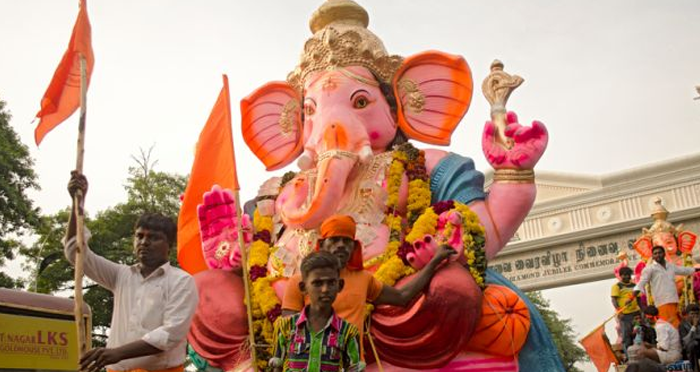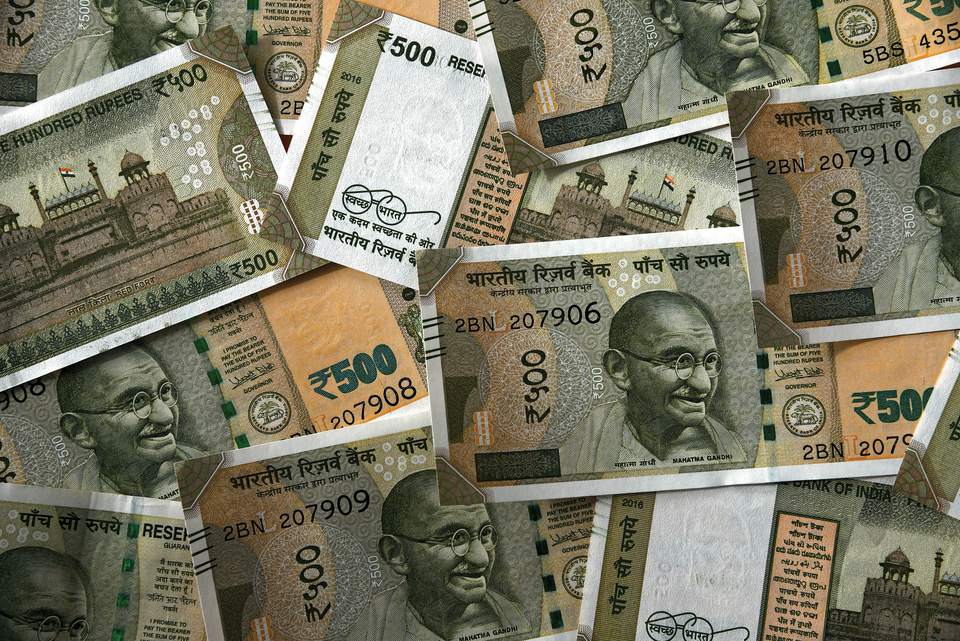It is that time of the year again when the the birth Anniversary of Lord Ganesha is celebrated with great fervour all across the country. The 10-day long festival attains great significance especially in the state of Maharashtra. Ganesh Chaturthi celebrations are gigantic and larger than life. It is one of the most colourful festivals in India that is celebrated with various rituals and traditions. Devotees of Lord Ganesha ensure a 10-day long fiesta and play host to their deity.The pious festival starts with bringing Lord Ganesha’s idol home and worshiping him for the next 10 days. This year, Ganesh Chaturthi
or Vinayaka Chaturthi will start on 25th August and end on 5th September 2017. The vidhi to bring Lord Ganesha should follow certain rituals and use certain samagri(ingredients) for the special Pooja. Rice (or askhat) is an important part of the Pooja samagri
and play a significant role in welcoming Gajanan.
As you bring Ganeshji home, followers shower Akshat or unbroken rice slathered with kumkum or turmeric on the idol to signify the welcoming of prosperity and happiness. According to Chef Manjusha Sinha who runs Manjusha’s Cooking Classes in Gurgaon, “Maharashtrians welcome Ganpatiji by showering kumkum laden rice. Once the idol is installed in the temple, we make the swastika with rice coated with turmeric or kumkum. Basically, we have to keep five important elements in front of the idol, which includes 11-21 betel leaves, Akshat,haldi,roli or gulal, bukka (black coloured powder used in various rituals) and a Kalash with a coconut in it. Along with these elements, a diya is lit for all the ten days to ensure there is no darkness around the idol.”
The place where Ganpatiji sits is known as the Isthaan and some people spread some rice grains around that place, along with supari and sprinkle some haldi on it. Not just this, a plate full of modaks as prasad or bhog is kept with these elements. After all, Ganeshaji loved modaks.
and it makes for one of the most important sweet offered to the deity.
It is believed that the rice grains attract the positivity and energy from the five principal deities namely Lord Shiva, Shakti, Shri Ram, Shri Krishna and Shri Ganesha. It is also believed that using unbroken rice grains helps in increasing the ability of attracting good vibes from Gods and Goddesses. So, while you mix them with turmeric or kumkum, ensure you do it slowly so that they don’t break the grains. It is also said that one should never offer plain white rice grains to the deity as it is not ‘shubh. Therefore, it is always good to mix them with either turmeric or kumkum which are considered holy.














